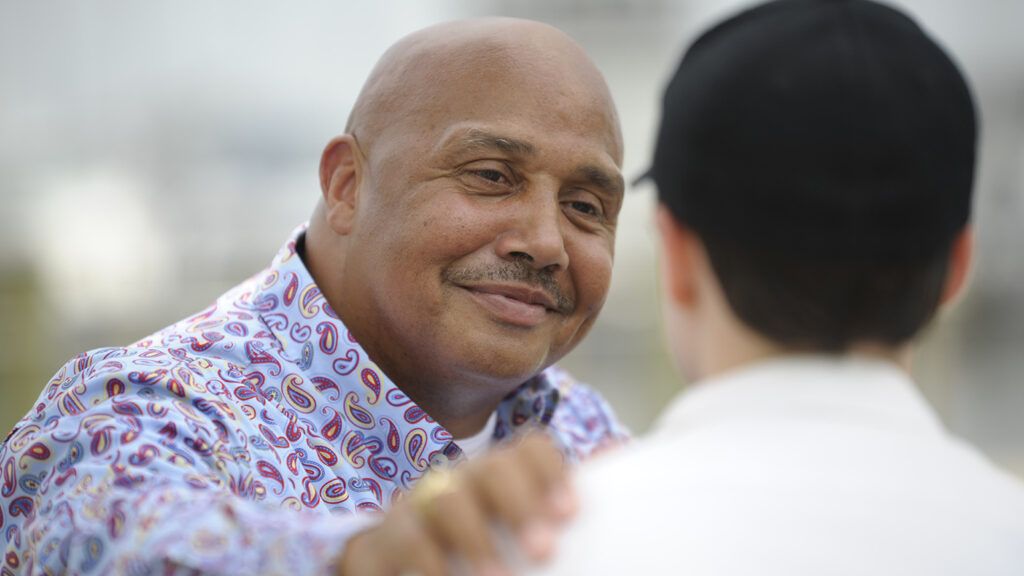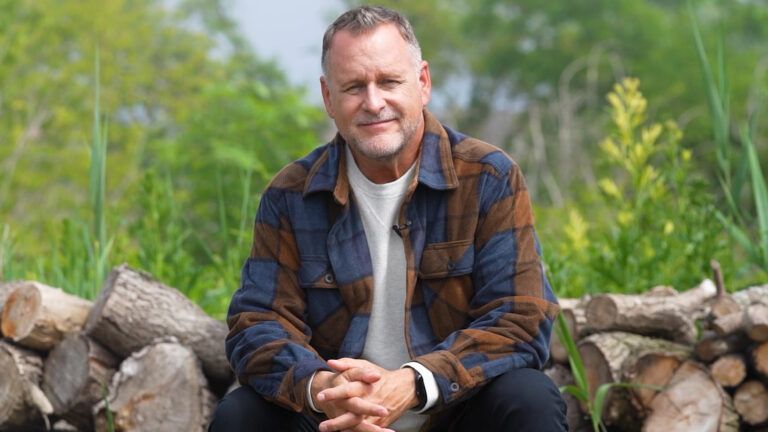Months into my first serious attempt to stay sober, I was about to throw it all away. I stood in my dorm room at Mercy House, a residential drug and alcohol treatment center in Georgetown, Mississippi. Mercy House is faith-based, emphasizing spiritual growth alongside more traditional substance abuse treatment methods.
I’d cycled in and out of plenty of rehabs during nearly 30 years addicted to crack cocaine. None were like this. We spent most of our time learning about God, Jesus and the Bible. We worked at an in-house thrift store, an auto repair center and a craft workshop. Surrender to God and following Jesus were the keys to sobriety, we were told.
I wasn’t sure I believed that. I’d started using crack as a teenager in Oakland, California. I became an addict, a dealer, a thief, a junkie living behind a dumpster, a dad who deserted his child to get high, a fugitive from the law and a Mississippi penitentiary inmate.
Now I was here. Somehow I’d convinced my parole officer to go easy on me after I got caught using drugs following my release from prison. I’d conned so many people over the years, including my wife, Judy, who was crushed that not even 13 years behind bars could drive out my addiction.
I couldn’t use drugs at Mercy House. But I still had an addict’s habits. I held part of myself back. My main question from day to day was, How can I maneuver my way out of this?
Today I’d let my self-control slip. I’d been pulled off one job and reassigned to another. I felt disrespected. I’m sick of this place, I thought. I want out. I didn’t care if I wound up in prison. At least there I knew how to get respect. I snuck into my dorm room, where no one would see me. We weren’t supposed to be in our rooms during the day.
I threw my stuff in a bag. Mercy House wasn’t a locked facility. No one could stop me from leaving. I couldn’t wait to get high. Might as well go out in style.
I paused. There would be no going back if I walked out. I was 42 years old. A prison sentence now might as well be for life. Judy had already filed divorce papers three times, then changed her mind. As stubbornly hopeful as she is, this time Judy would be gone for good.
“God!” I shouted. “If you are who they say you are here, you need to show up right now! Because I am done!”
I stopped. I listened. Nothing. I didn’t have an easy explanation for why I’d gotten addicted to crack. Yes, my part of Oakland had a high rate of crime and drug use. And, yes, my biological father was out of the picture, my stepdad not much of a dad.
But my mom, who worked for the postal service, was a steady provider. She’d put me in private school and done her best to keep me on track.
So why did I take my first drink as a teenager? My first hit of marijuana? Why did I start dealing weed at school? Why did I try crack?
What I did know was that drugs create a vicious cycle. Once addicted, I needed money to get high. I stole, then became a dealer. I spent everything I earned on crack and wound up on the streets, eating out of garbage cans. I got a woman pregnant, then walked out on her and our son because they got in the way of my getting high.
It was a shameful life. Drugs dulled the shame. I made vows to get better, went to rehabs, started my life over in a string of cities.
I ended up in Mississippi, where I had relatives. I got a temp job at J.C. Penney. I met Judy there. She did visual merchandising. I charmed her by pretending to be honest about my drug past.
“I’ve been clean for two years,” I boasted. More like two hours.
I maintained just enough of a veneer of normalcy for us to get married. Though Judy saw the warning signs, she thought she could keep me on the right path. Like I said, she is stubbornly hopeful. We went to church, but I was just going through the motions.
Mercy House was practically a church. We woke up at 5 a.m. and spent much of the day reading Scripture. We also worked jobs and studied a book detailing 49 qualities of a godly person.
I tried to tell myself it was bull. But I was intrigued by this Jesus guy. Forgiveness? New life? Even for me?
It would be amazing to be forgiven and start over with a clean slate. Could I be a man Judy relied on and respected? Stop running and live a godly life?
I stood in the room, agonizing over what to do. “God!” I shouted again.
This time I did hear a noise. Someone sat up in one of the bunks and stared at me. A roommate who was sleeping off a sick day. How much of my ranting and raving had he heard? He gave me a strange look and slunk out of the room. I hung my head. God was obviously not coming to my rescue.
Then I felt it. A heavy weight nearly forced me to the floor. Every wicked thing I’d done pressed down on me. A moment later, it lifted. There was no booming voice from on high. No shining light. Just an inner certainty that God had heard my cry and turned me onto a new path.
I felt exhausted, as if coming down with the flu. But I knew what I had to do. I unpacked and returned to work.
Over the following days, I struggled to understand what had happened. There was no doubt in my mind: I would never use drugs or commit a crime or betray Judy again.
But how? It seemed too good to be true that God had simply removed that defect from my brain.
I committed myself to the Mercy House program and began praying for real. During one prayer, I got angry at God for healing me so abruptly. “If you could do that just by snapping your fingers, why did you let me suffer and inflict pain on other people for 27 years?”
God answered. He told me he acted when I surrendered. Until then, whatever prayer I might have sent his way was me trying to manipulate him, just as I manipulated everyone else. He waited until my cry for help was sincere.
The next time Judy visited, she teared up before she’d even crossed the room. She saw the change in my face.
I graduated from Mercy House and began living in a new way. Until then, I’d never held a job for more than six months, never voted, never paid taxes. After Mercy House, I enrolled in community college, then the University of Southern Mississippi, studying social work. I wanted to help people like me.
Guess where I was assigned to an internship while pursuing my undergraduate degree? The same courtroom where I was tried and sentenced to 20 years for dealing drugs and grand larceny. The D.A. who’d prosecuted my case was now the judge there. She recognized me and, outside the court, asked if she could give me a hug.
I graduated with honors and earned a master’s in social work from Southern Mississippi. After interning with the Department of Veterans Affairs, I became a counselor at an intensive outpatient drug and alcohol treatment center in Biloxi and served as an adviser to the Gulfport police department. (I know, I find it hard to believe myself.) I talk to professional organizations about the role of religious faith in addiction recovery and drug offender rehabilitation.
I know exactly what my clients are going through. One recently came to me after being released from prison. She was stunned to learn that her social worker had once been incarcerated too. We talked about how hard it is to communicate with loved ones from behind bars. She and her boyfriend, also incarcerated, used to call friends at the same house, who then placed their cell phones beside one another on speaker.
“You get it,” she told me.
On one wall of my office, I’ve hung my diplomas, awards and a framed newspaper clipping, its photo showing me with the chief of the Gulfport police department. “New Life” reads the story’s headline.
Beside it is a framed copy of my prison sentencing document. I try to make sure clients see both those things.
The ruling emotion of an addict is hopelessness. I want my clients to know that there is always hope. The new life God has given to me is being offered to them too. He is waiting for them to reach out.
For more inspiring stories, subscribe to Guideposts magazine.





